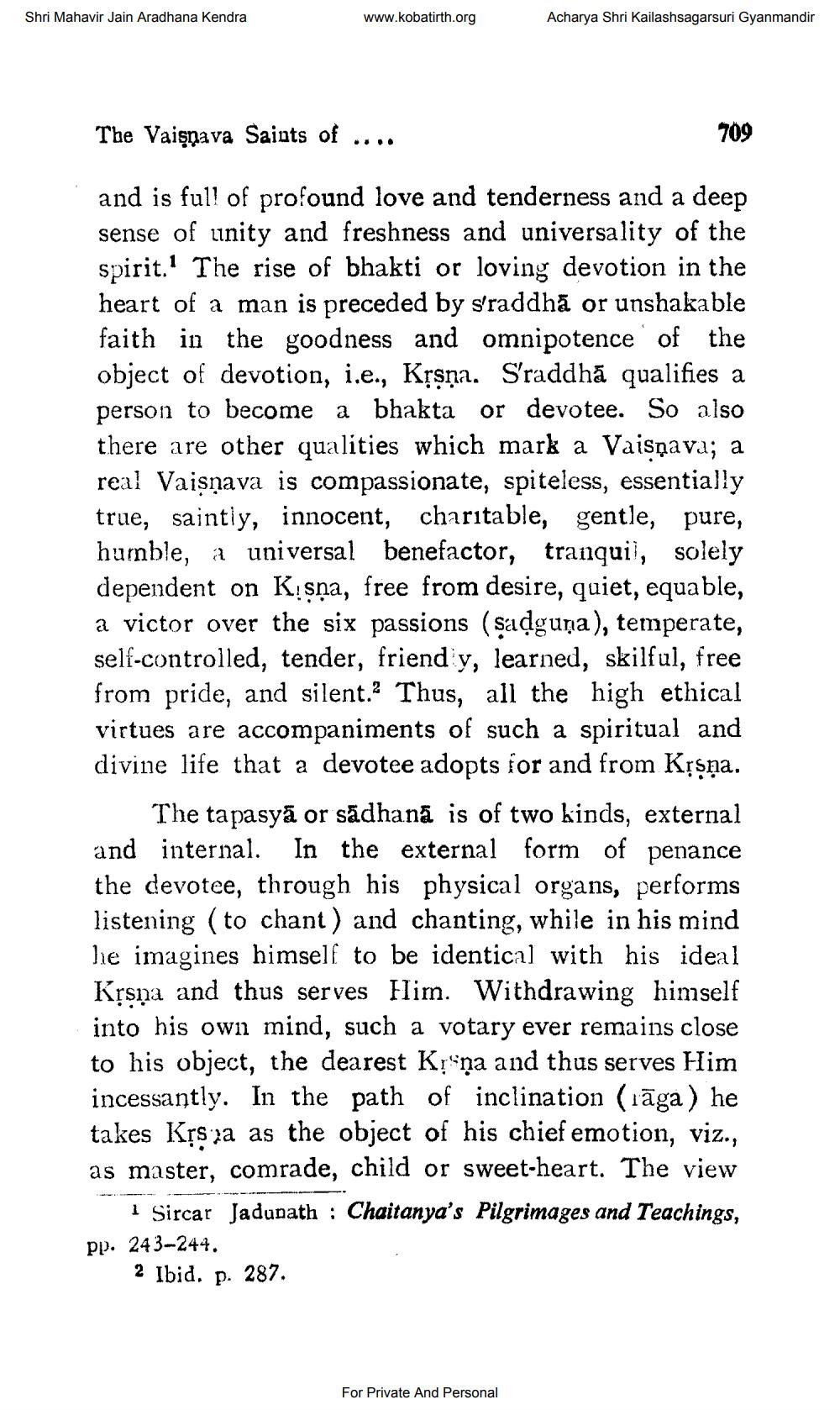________________
Shri Mahavir Jain Aradhana Kendra
www.kobatirth.org
Acharya Shri Kailashsagarsuri Gyanmandir
The Vaişpava Saints of ....
709
and is full of profound love and tenderness and a deep sense of unity and freshness and universality of the spirit.' The rise of bhakti or loving devotion in the heart of a man is preceded by s'raddhā or unshakable faith in the goodness and omnipotence of the object of devotion, i.e., Kțşņa. Sraddhá qualifies a person to become a bhakta or devotee. So also there are other qualities which mark a Vaisnava; a real Vaisnava is compassionate, spiteless, essentially true, saintiy, innocent, charitable, gentle, pure, humble, a universal benefactor, tranquil, solely dependent on Kisna, free from desire, quiet, equable, a victor over the six passions (sadguña), temperate, self-controlled, tender, friend y, learned, skilful, free from pride, and silent. Thus, all the high ethical virtues are accompaniments of such a spiritual and divine life that a devotee adopts for and from Kțşņa.
The tapasyā or sādhanā is of two kinds, external and internal. In the external form of penance the devotee, through his physical organs, performs listening (to chant) and chanting, while in his mind he imagines himself to be identical with his ideal Kțsņa and thus serves Him. Withdrawing himself into his own mind, such a votary ever remains close to his object, the dearest Krsna and thus serves Him incessantly. In the path of inclination (1āga) he takes Kțsia as the object of his chief emotion, viz., as master, comrade, child or sweet-heart. The view
Sircar Jadunath : Chaitanya's Pilgrimages and Teachings, pp. 243-244.
2 Ibid. p. 287.
For Private And Personal




